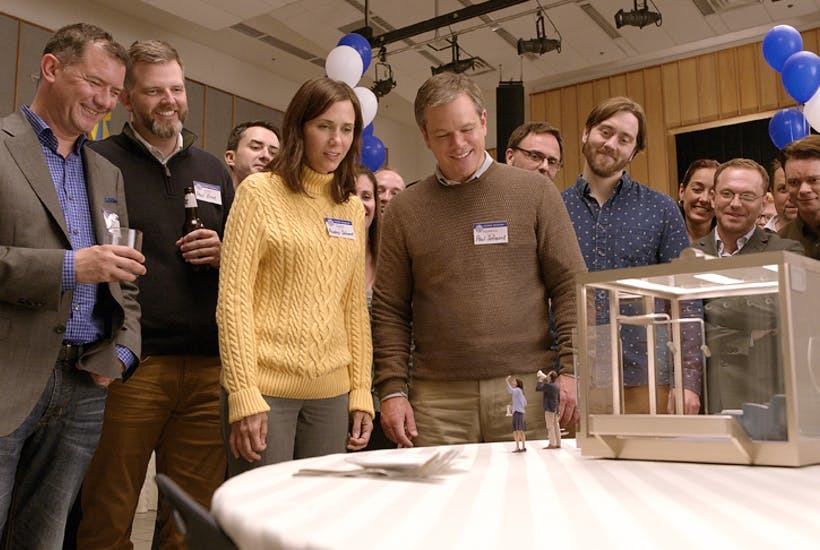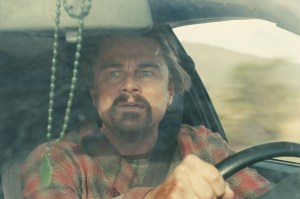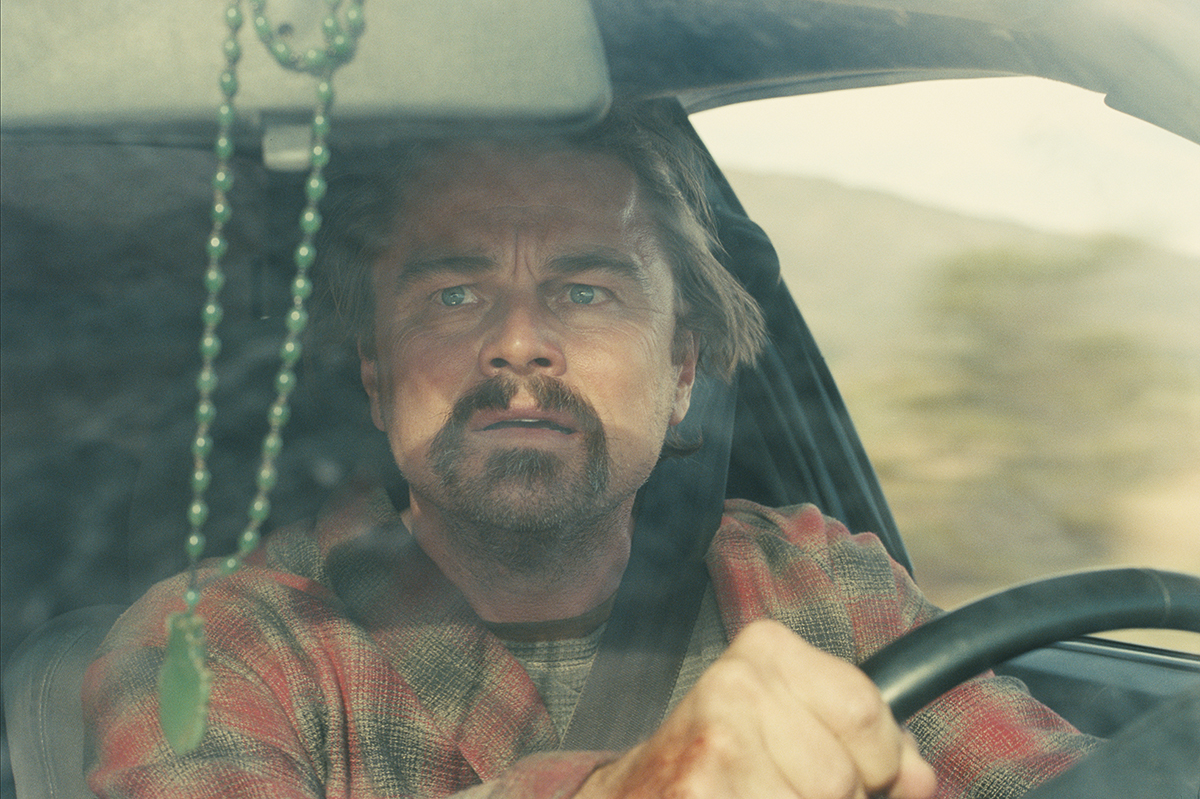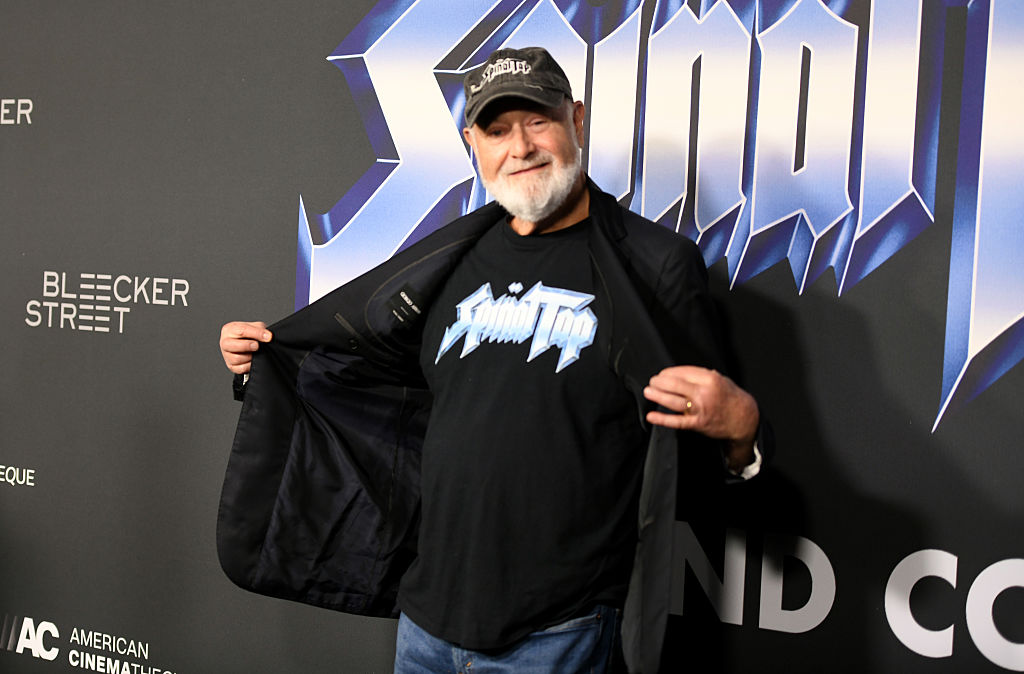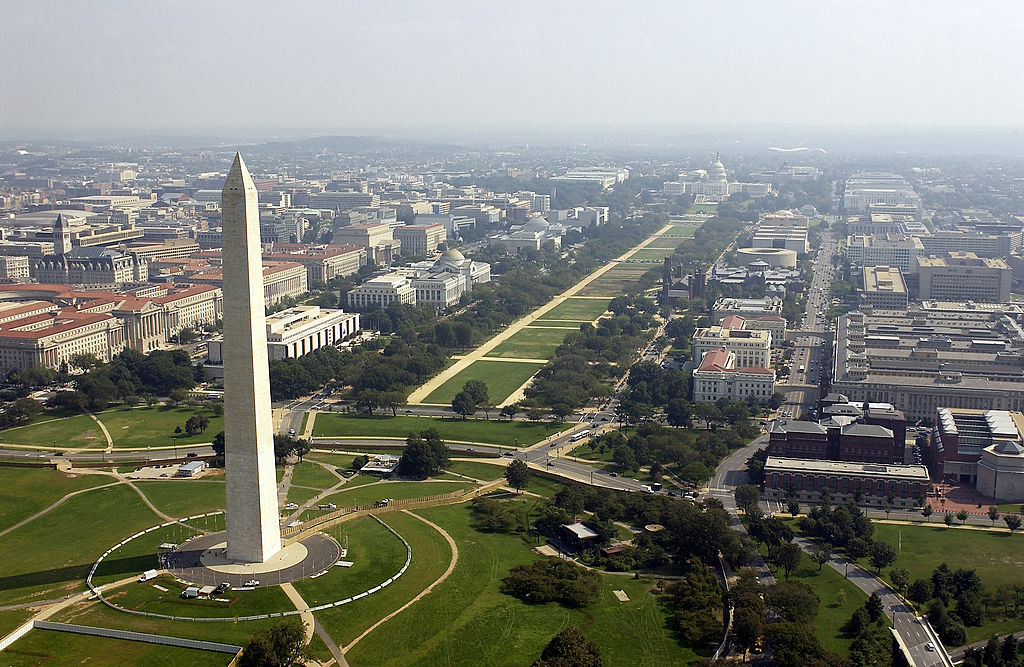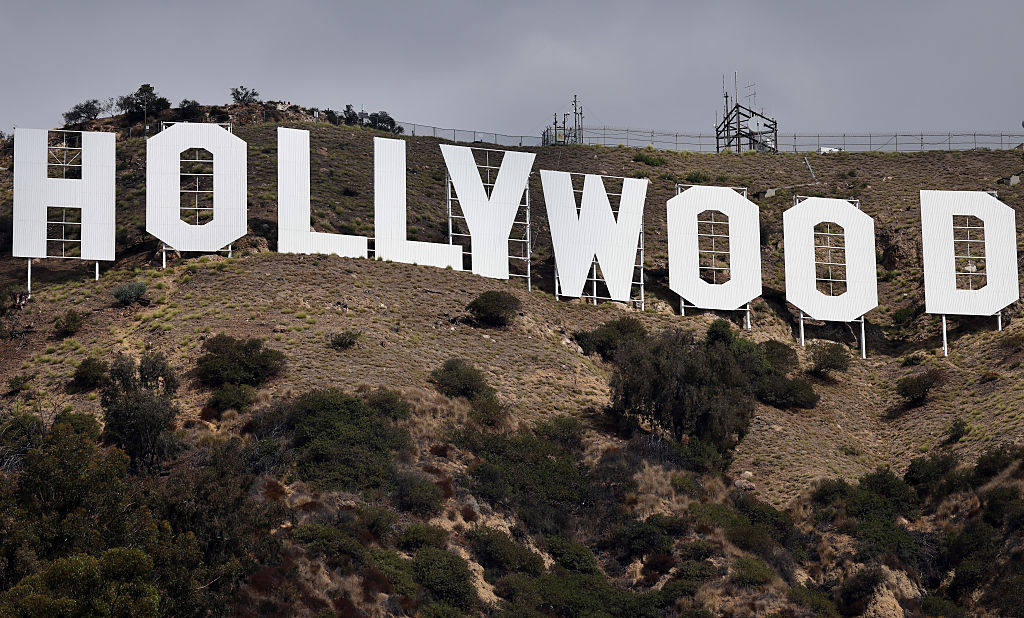Downsizing
is a film with the most brilliant premise. What if, to save the planet, we were all made tiny? What if we only took up a tiny amount of space and flew in tiny planes and produced tiny amounts of rubbish? And what if we could live in the sort of mansions that would cost millions if they were regular-sized? What if, what if, what if, what if… but most crucially: what if this film had run with the premise rather than throwing it away? Could it have avoided becoming just another dumb ‘white saviour’ movie? And this, alas, is the ‘what if’ that must preoccupy us today.
This is a film by Alexander Payne, otherwise known for Sideways and Nebraska and About Schmidt, so there may just be no explaining it. Guttingly, it does have a brilliant first act, and opens with the Norwegian scientists who have discovered ‘cellular miniaturisation’ and a way of making humans just five inches tall. They sell the idea on the environmental ticket and then we spool forwards a decade to find that it’s popular and there are now ‘downsized communities’, like Leisure Land where, according to a promotional talk, which features Laura Dern in a bubble bath, you can buy a diamond ring with matching necklace and matching earrings for…$83! The diamonds also being so tiny, you see. And you can afford a McMansion too! Go small to live large is the message.
Tempting, particularly for Paul (Matt Damon) and his wife Audrey (Kristen Wiig) who live a beige kind of life. He is an occupational therapist who wanted to be a surgeon but had to cut short his studies. She is not awarded a job, but does drag her husband to view properties they can’t afford, in the manner of all wives everywhere, one supposes, when they are not obsessing over diamonds. (Still a brilliant first act, but the portrayal of women is miserable.) Paul and Audrey are visited by miniaturised friends who sit on a cookie box and talk them into it. So cute. Plus intriguing, too. And once the pair do go for it, the miniaturisation process is fantastically realised, right down to being scooped, post-treatment, off the gurney with a fish slice.
But when Paul comes round fully, he discovers Audrey has actually backed out (bye-bye, Kristen) so now he has to live alone in his McMansion. I was worried for Paul, I admit. Not just the loneliness, but how does Leisure Land work? Wouldn’t a single rainshower be akin to a flood? What if a passing bird of prey were to pick him off? But, luckily, Paul is a man of no curiosity whatsoever, so is spared fretting about any of that, or what he should be properly fretting about, as in: where has the premise gone? It was here a minute ago. Did a bird of prey make off with that too?
The fact is, once we’re in Leisure Land and only tiny people are in the equation, their tiny-ness is lost. As their houses and tennis courts and diamonds and cars are all scaled to size, the tale simply becomes one about regular people, which is a drag. (I want to see them sitting on cookie boxes!) Then there’s the tale itself, which doesn’t know what it wants to be. It’s not social satire. It’s not a fable. It isn’t The Truman Show, and doesn’t create an alternate world with something to say about this one. Instead, it offers a jumble of barely explored, quarter-baked ideas attached to a laborious plot that takes in Paul’s rowdy, profiteering neighbour (a gurning Christoph Waltz), a party that goes on for ever yet serves no narrative purpose and Paul’s romance with a one-legged Vietnamese refugee (a scene-stealing yet culturally stereotyped Hong Chau), who shows Paul the darker side of Leisure Land, but the best side of himself. She exists solely so he can realise what matters, and what doesn’t, so he might ‘white saviour’ his own self. Meanwhile, although Paul is intended as a generic everyman, Damon can’t bring to the role what, say, Tom Hanks might have done, so the character stays blandly annoying throughout.
As for the ending, this involves a bewildering trip to Norway — tiny people in tiny boats don’t have to worry about currents or anything? — in an attempt, I think, to save humanity from extinction. Personally, I wished we’d gone extinct at around 20 minutes in. Because that would have been the best time to call it a day.



